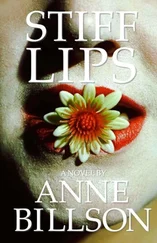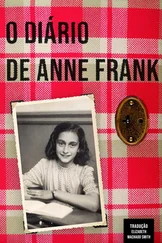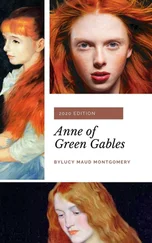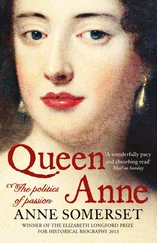The bathroom smelt of fake pine, and the predominant shade was lilac. There were no interesting prescription drugs in the wall-cabinet; just aspirin, and Listerine, and tampons manufactured in Havant. I retraced my steps along the hallway. The bedroom had been decked out in lemon yellow, in that bland style witless folk called 'feminine' — floral-patterned quilt, brass bedstead, and fluffy toys. The bed hadn't been made; apart from the mug, it was the only evidence I had seen of sloppiness. On the dressing-table were a couple of pinkish-beige lipsticks, a bottle of Dior perfume, and some blemish concealer. I sneered and went into the last room. This was the room which faced on to the street, and it was darker than the rest of the flat because the blinds were closed. I could just about make out the outlines of furniture, and that was all, so I went over to the window and yanked on the cord to let in some light.
I should have realized something was up as soon as I felt the scrunching beneath my feet, like the sensation you get from walking on a crisp layer of snow. As I let the light in, I turned away from the window and saw a lot of things. Not all of them registered immediately. But I saw enough to make me snap the blinds shut, quickly, before the smell of burning could get any worse.
The first thing I saw was the mirror over the mantelpiece, or what was left of it. There was hardly any glass left in the frame — most of it lay in pieces on the carpet; I'd stepped on some and shivered it even further. It was impossible to tell precisely what had happened, because the floor was covered in debris; as well as glass, there were pieces of broken china, scraps of fabric, and feathers. I remember thinking how odd it was this room should be so untidy when the rest of the flat had been so neat. Patty had slipped up there.
Then I saw exactly where she had slipped up. One of her slippers had fallen off, and I saw her bare foot before I saw the rest of her. She was lying alongside the sofa, one cheek pressed into the carpet, hair spread out like a fan. There was blood on her dressing-gown, but not much.
And that was it. That was all I saw of her as she was then, because the exposed part of her face was already turning a shiny plum colour, even as I looked. The light came in through the window from the north. What with the clouds and rain it was fairly feeble, but it was still enough to make her skin blister and pop. Patricia Rice was fortunate it was not a sunny day.
Her limbs twitched. There was movement beneath the dressing-gown, but I knew it was involuntary. There were sounds, but they were involuntary too, like the bubbling and hissing when milk boils over and splashes on to the hot-plate. And there was a smell like lamb chops cooking beneath the grill; it was a smell which under normal circumstances I would have liked, which made it worse. It took me a split second to see all this and then I fumbled for the cord and pulled the blinds shut.
I was thinking practical thoughts, and lots of them. My brain was a different creature from the battered cephalopod of the day before; now it was whirring through the options like a well-oiled fruit machine. Carefully, I trod back across the room and switched on the lamp by the telephone. I was quite calm. I was calm because I knew what was going on. I'd seen this sort of thing before: open wounds on the neck, glassy-eyed stare.
Definitely Violet.
Violet had been here.
And Violet would be back, this night or the next, to complete what she had begun. It was this certainty, more than anything else, that stopped me from leaving the blinds open, though I couldn't for the life of me imagine why anyone should bother to preserve someone as boring as Patricia. I craved nicotine, but I didn't dare light up. I wanted to leave things as near as possible to how I'd found them. As it was, I knew that Violet, as soon as she came back, would smell that someone else had been present. I wondered whether she would be able to identify the source of the scent; I wondered whether her olfactory recall went back that far.
But I had other unfinished business. I crossed the room again and rifled the bureau. Patricia's papers were not as organized as the rest of her life. I found a mass of unpaid bills: gas and electricity and television rental. There was an uncompleted insurance form, and a half-finished letter to someone called Moira, and a small red address-book notable only for the number of blank pages. I thought of my own personal organizer crammed with names and addresses and telephone numbers, and for a few seconds I almost felt sorry for Patricia. Then I decided it served her right. Nice girls don't gazump.
But there was no sign of my letter. I scanned the rest of the room, reluctant to touch any more than was necessary. I especially didn't want to touch what was left of Patricia. There was a sudden hiss of tyres on wet tarmac as a car went past the window. I checked my watch, thinking I'd been there ten minutes, but more than half an hour had passed since I'd inserted the key. It was time to beat a retreat and devise a plan of action. As I pulled my raincoat back on, I heard the muffled thud of a pneumatic drill starting up across the street. The building-site boys had finally turned up for work. They didn't see me letting myself out. No one did. No one had seen me go in. And no one saw me leave.
I was an only child, brought up in a semi-detached, three-bedroomed house on the outskirts of Havant. This is a place which rings bells with people who like to read the small print on packaging; Havant is best known for its tampon factory.
I never gave my parents any trouble, at least not to begin with. I never stayed out late with unsuitable friends, because I didn't have any friends, unsuitable or otherwise. I didn't really fit in at school, but I managed not to make too many enemies, and I worked hard. I was seventeen, studying for A-levels in French and Art, when my mother suddenly got it into her head to search my bedroom. She found all sorts of interesting things: a sheep's skull I'd found in a ditch, a collection of adult magazines shoplifted for research purposes, a diary which was more fantasy than fact, and some of the drawings I'd done to illustrate my favourite French set book, Les Fleurs du Mal .
I came home from school that afternoon to find a bonfire blazing in the garden, my mother stoking the flames hysterically as my most valued possessions turned to ash. It was the diary that had set her off. She burst into tears, called me an unnatural child, and told me I was no longer welcome in her home. She wept even more when she saw I was only too eager to leave. There were streaks of grime on her face, and her hair, usually so neatly permed, frizzed around her head like a tangle of live wire. She appeared to be having some sort of nervous breakdown. I was hugely embarrassed, and disowned her on the spot.
I spent the night in a neighbour's garage, curled up in a nest of oily rags and yellow newspapers. I was in a state of shock — this was the most exciting thing that had ever happened to me. In the morning, my father rather sheepishly gave me some money and I caught the next train to London. For the next five nights I slept on the sofa in a flat belonging to a friend of his secretary, who had also supplied me with some of her old clothes. In the daytime, I roamed the streets, living off coffee and sandwiches, and loitered in the British Museum, sketching and making notes. On the fifth day I strayed into University College and jotted down some phone numbers from the students' notice board. Two days later I moved into a small room in Camden Town.
The following weekend, my father drove up to deliver all my unburnt earthly goods: clothes, record-player, records, and boxes of books and papers. My mother had sent bedlinen, a towel, and a tear-stained letter in which she begged me to come home. I told my father this was out of the question, and he agreed to send me a small allowance each month, at least until I found my feet. It wasn't much, but it took care of the rent.
Читать дальше












